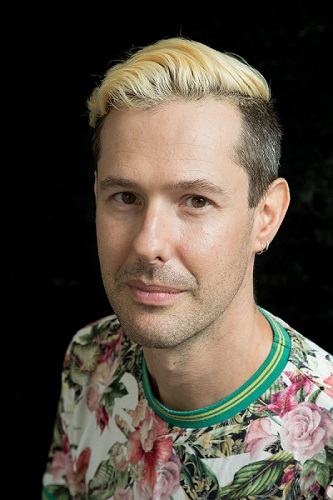Liam Livings Considers Compassion And Inclusivity
4 December 2019
 Liam Livings, the RNA’s diversity and inclusion officer, offers some thoughts on a few topics that have been on his mind, and how they affect why and what he writes.
Liam Livings, the RNA’s diversity and inclusion officer, offers some thoughts on a few topics that have been on his mind, and how they affect why and what he writes.
Compassion
Compassion means inclusivity. Someone said this to me recently and I had something of a ‘mic drop’ moment. Let’s break that down a little.
According to dictionary.com, compassion is: sympathy, pity and concern for the suffering or misfortune of others.
Coming back to my favourite dictionary.com, inclusivity means: the practice of including people who may otherwise be excluded, including those from marginalised groups.
Although people may not always understand everything about people who are different from themselves, that doesn’t mean they can’t be compassionate.
I remember watching one of my favourite period dramas last year, A Place to Call Home, set in a small community in Australia in the 1950s. There is prejudice against a nurse who is Jewish, a man who is from the indigenous population of Australia, and also one of the characters who is gay.
Mrs Collins, who volunteers at the local hospital and is partial to discussing the other characters’ business, finds out that Mr F is gay. Her immediate response to Ted who is her farmer friend, is that it says it is a sin in the Bible, and she does not understand it.
Putting that to one side for a moment, it’s worth reminding ourselves that at that point Mr F would not have been able to marry someone he loved. Even having a relationship in the open was technically illegal. He could have been struck off from being a doctor. Not to mention all of the disapproval and prejudice he would have received once people knew he was gay.
Ted responded to Mrs Collins by saying, “I don’t really understand why a bloke would want to kiss another bloke. But I do know he is a good bloke.”
“But in the Bible-” Mrs Collins said.
“When you get home, look in the Bible, and check if you have ever done anything that it says you shouldn’t. And then, if you’re absolutely clear that you have never done anything that you’re not supposed to have done, then you are a much better person than I am. If, however, you’ve done anything in the Bible that you shouldn’t, then a little bit of compassion is all Mr F is asking for.”
Mrs Collins and the farmer do not need to understand why Mr F is attracted to men. In fact, it doesn’t really have anything to do with them. But what they do need to try to do is to have sympathy for how much Mr F is suffering, and how difficult his life is simply by being the way he is.
By being compassionate and supportive, for Mr F to continue to live in the community, they are demonstrating that compassion means inclusivity. It’s really no more complicated than that.
I think most people genuinely want to be kind and don’t really want to inflict harm on others. So if you find yourself confused, not understanding where another person is coming from, I remember this scene and tell myself to try and see it from the other person’s point of view, to try and understand why they’re behaving like that, rather than to dismiss or mock.
Mr F didn’t want anything more than any of the other residents of that small fictional community in Australia already had. He simply wanted to be treated as equal to everyone else.
Using mocking language, being dismissive, telling yourself it’s a joke, really isn’t treating someone as an equal; nor is it being compassionate.
The only way that we can really be compassionate by being inclusive is simply by doing it. Every day. Every time you interact, or read or see something about a person or incident you may not fully understand. Seeking to give the other person sympathy and concern for someone else who is less fortunate than ourselves.
As an author, I always seek to put myself in the mindset of my characters, to understand their motivations, what has shaped the way they view the world. And I also try to do this with people too. Sometimes it can be challenging, but I always try to do my best even if I don’t fully understand.
And because I can’t put it any better, I’m going to end with an Elizabeth Gilbert quote. She wrote Eat Pray Love,which is also a splendid film starring Dame Julia of Roberts. It’s about a journey of self discovery. And it’s wonderful. From start to finish.
Elizabeth Gilbert: There’s always another level up. There’s always more ascension. More grace, more light, more generosity, more compassion, more to shed, more to grow.



